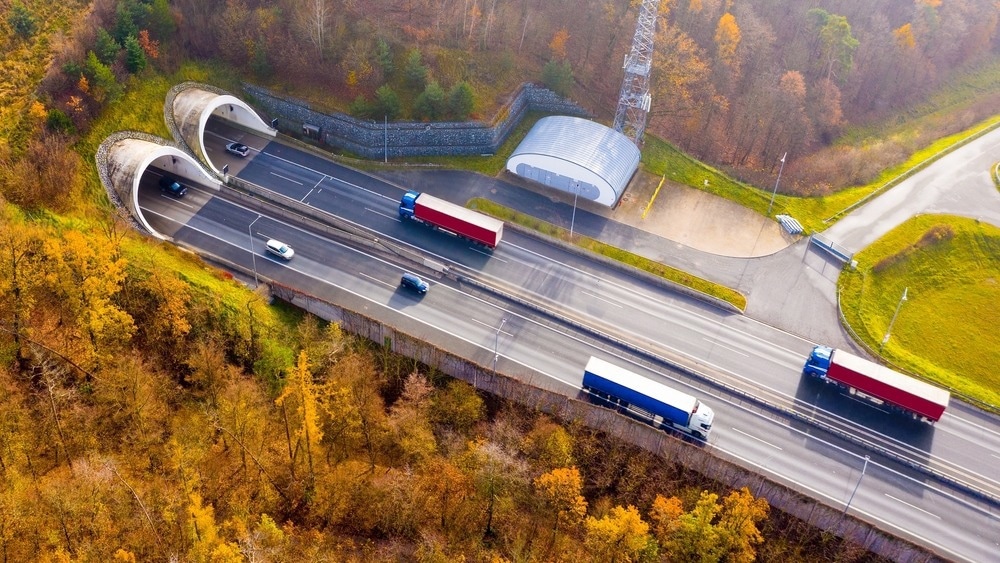Current methods of production and consumption rely on natural resources to provide society with food, shelter, electricity, and health care, but they are not sustainable. While researchers from various fields have long explored ways to make these systems more sustainable, there is currently a move within the socio-technical and socio-environmental research communities to collaborate.
 Highway tunnel in mountain. Traffic on the road. Transportation from above. Cars as a source of air pollution. Image Credit: The University of Manchester.
Highway tunnel in mountain. Traffic on the road. Transportation from above. Cars as a source of air pollution. Image Credit: The University of Manchester.
New research on transitions in the food, mobility, and electricity systems is presented in a new special feature that was published on November 21st, 2023, in the Proceedings of the National Academy of Sciences (PNAS). The feature was guest-edited by researchers from Harvard University, The University of Manchester, and the Institute for Ecological Economy Research (IÖW).
These results provide new insights into the dynamics of transitions by synthesizing, elaborating, and applying research on sustainability transitions, which has advanced dramatically over the last ten years.
The aims and ambitions of sustainability are no longer the main emphasis of this research; instead, it is the actual change processes that could contribute to achieving those goals. Fifteen articles in this special feature offer fresh perspectives on transitions to a broader audience of sustainability researchers, practitioners, and policymakers.
Large-Scale, Long-Term Changes of Systems Needed
The central challenge of our age is how to make development sustainable – to assure that it advances people’s well-being in the here and now without unfairly constraining the ability of people elsewhere, or in the future, to advance their own well-being. That requires transitions, by which we mean significant large-scale, long-term changes in the actors, institutions, technologies, and resources that make up consumption-production systems.
William Clark, Professor, Harvard University
The papers in this special feature examine these developments in the areas of food systems, mobility, and electricity. Furthermore, they tackle overarching concerns including the instability of established structures, the function of disruptions, and the management of transitions.
Core Aspects of Transitions Research: Multi-Level Interactions, Solutions, Process of Change
This special feature makes three contributions to the pursuit of sustainability: highlighting the importance of multi-level interactions in sustainability transitions, a focus on solutions (innovation), and a deeper and more differentiated analysis of the processes of change.
Frank Geels, Professor, System Innovation and Sustainability, University of Manchester
He added, “It is interesting to see that transitions in the electricity, mobility and food systems are currently unfolding at different speed and depth. This is due to different techno-economic developments and socio-political activities. They have progressed farthest in the electricity system. In the (auto)mobility system they are beginning to unfold, and in food systems they appear to be in early phases.”
The studies show how sustainable transition processes are multifaceted and cannot be adequately explained by technological or economic factors alone. Instead, their work highlights the significance of viewing sustainability transitions as multi-level, systemic, unfinished, and contentious processes, where innovation is a vital component that is constantly influenced by and contributes to developments in the social, political, economic, and cultural spheres.
Deeper Transitions Are Slower
One of the important findings from across the special feature is that transitions are often about reconfiguration rather than substitution of existing systems and that there are tensions between depth and speed of change: the deeper a change, the more difficult and slower it tends to be. It is also important to recognize that the governance of transitions is highly political and can be very politicized. There are winners and losers.
Florian Kern, Head, Institute for Ecological Economic Research